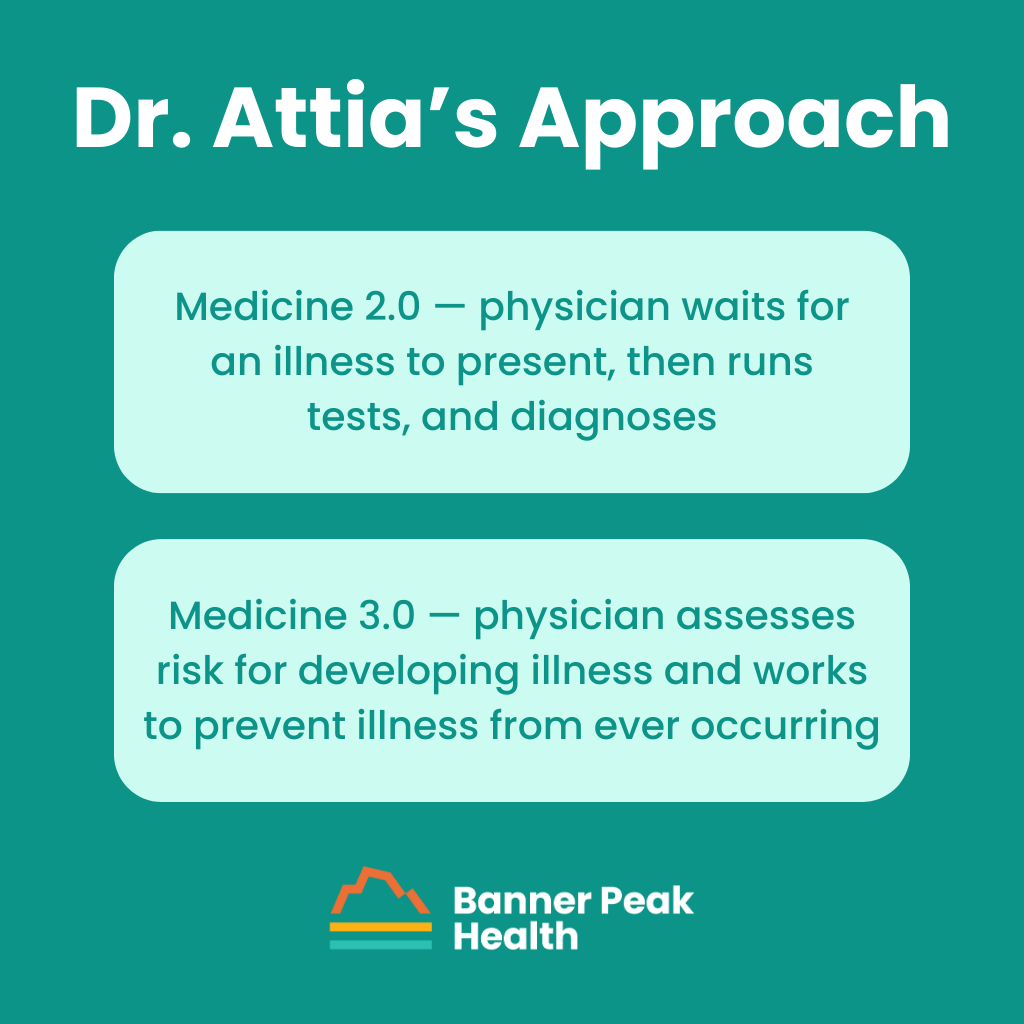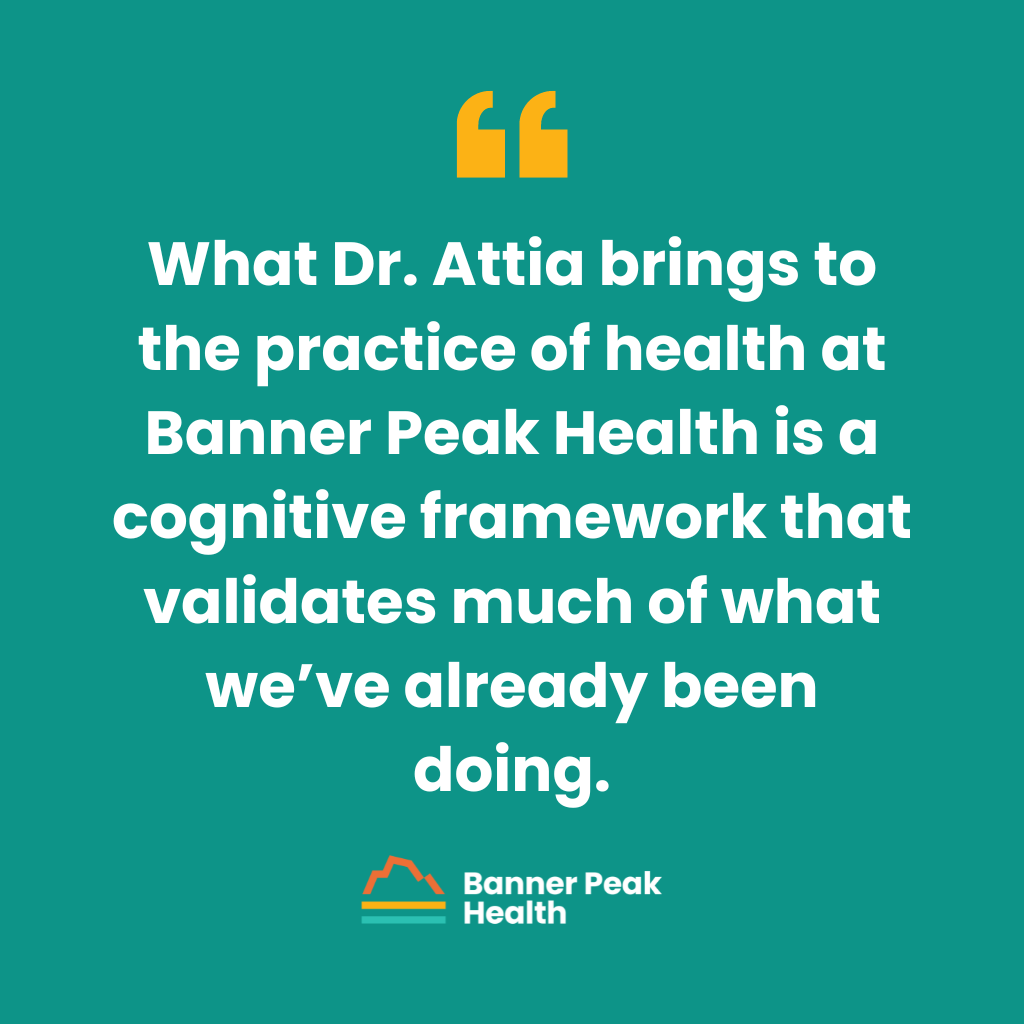“Outlive: The Science and Art of Longevity” by Peter Attia is one of the best medical books I’ve ever read. I’m not alone in that assertion — Steven D. Levitt, New York Times bestselling author of “Freakonomics,” called it “One of the most important books you’ll ever read.”
“Outlive” is structured like most books in the self-help genre. Dr. Attia recounts his autobiographical journey, then entices the reader to follow him on the path he’s described.
His eclectic background informs his creative thought process and brings a different perspective to the medical challenges of prolonging life.
As a young man, Attia planned to become a professional boxer. Plans changed, and he earned undergraduate degrees in mathematics and engineering. From there, he studied medicine at Stanford and earned an M.D.
At the beginning of his career as a physician, he studied at Johns Hopkins Hospital in general surgery and at the National Institutes of Health as a surgical oncology fellow.
Today, he focuses on longevity and healthspan (the number of healthy, fully functioning years we have). What I appreciate most are the intellectual constructs he brings to the field.
He’s put a new spin on prevention, explaining that you’ll enhance your longevity by preventing things that cut your life short. A vital part of that is primary care internal medicine.
Why This Topic Strikes a Chord
In today’s post-pandemic society, we have an opportunity to shift the way we approach our health from defensive to offensive. Rather than merely reacting to a health issue, we can work proactively to prevent that health issue from happening in the first place. That appeals to many people, myself included.
The pandemic changed the world in many ways, but one potentially positive outcome is that people are much more cognizant of their health and wellness. That awareness means people realize the value of preventative methods.
Case in point: Dr. Attia’s book is a number one New York Times Best Seller and has nearly 3,000 5-star reviews on Amazon.
Dr. Attia’s Approach
Dr. Attia calls his approach Medicine 3.0 and refers to traditional medicine as Medicine 2.0. Here are the basic differences:
- Medicine 2.0 — physician waits for an illness to present, then runs tests, and diagnoses
- Medicine 3.0 — physician assesses risk for developing illness and works to prevent illness from ever occurring
The problem with Medicine 2.0 is the inherent limitations within the research. Traditionally, research takes decades of study and carefully controlled experimentation.
However, we can’t test humans the same way we test lab rats, especially when our goal is prevention rather than treatment. Who would commit to experimental lifestyle changes for decades for the sake of science?
Therefore, we can’t rely on the traditional methodology (clinically controlled trials) used by Medicine 2.0 to guide us in pursuing our goals in Medicine 3.0. We need to form a new body of scientific evidence using an alternative to randomized controlled studies.
Focus on Fundamentals
What I find most appealing about Dr. Attia’s approach to longevity is his focus on the fundamentals. The study of aging and longevity has yielded tremendous insights into the physiology of how our cells age.
Many people tout hypothetical pharmacological interventions as solutions to help us prolong our health and lifespan. However, I strongly agree with Dr. Attia that lifestyle modifications are the strongest and safest modalities.
He then introduces what he calls the Four Horsemen — the four leading causes of death and disability in Western society. They are:
The remainder of his book details therapeutic modalities, for which there is the best evidence for avoiding or staving off these Four Horsemen. The fundamentals he describes are what we’ve always referred to as lifestyle medicine.
He emphasizes:
Only then does Dr. Attia mention what he calls exogeneous molecules, or pharmacological treatments, which play a refreshingly small role in his extensive book.
The Banner Peak Health Connection
At Banner Peak Health, we always look for new diagnostic and therapeutic techniques to provide our patients with more personalized care. If you share that commitment, I highly recommend reading “Outlive” by Peter Attia, M.D. It’s quite a deep dive, but it’s well worth it.
What Dr. Attia brings to the practice of health at Banner Peak Health is a cognitive framework that validates much of what we’ve already been doing.
He also inspires new ways of thinking about the challenge of maintaining lifespan and healthspan as part of a longevity program. We plan to incorporate those insights into our practice.

Barry Rotman, MD
For over 30 years in medicine, Dr. Rotman has dedicated himself to excellence. With patients’ health as his top priority, he opened his own concierge medical practice in 2007 to practice medicine in a way that lets him truly serve their best interests.





